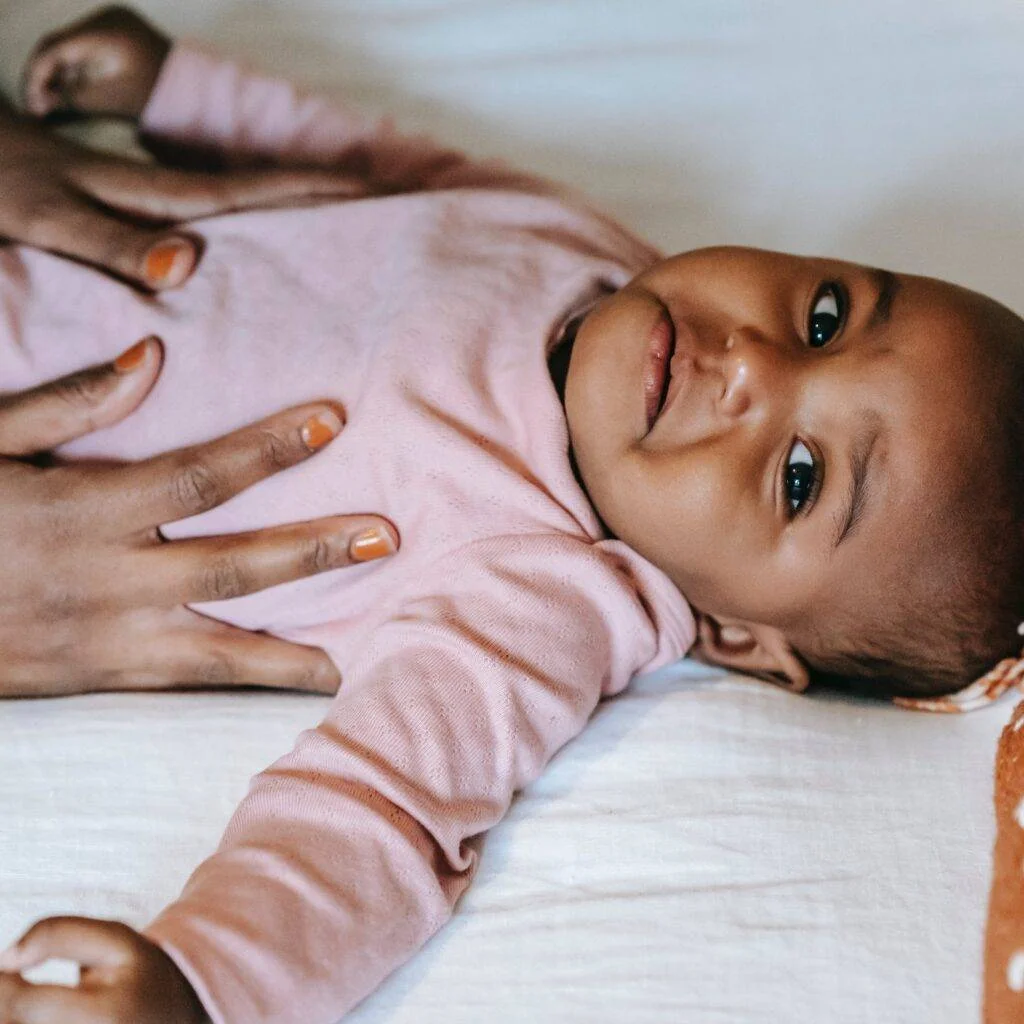
Yes, hiccups are common in babies under a year old.
Babies even hiccup in the womb – as early as 21 weeks – which sometimes alarms pregnant moms but is totally normal.
Hiccups are usually harmless and don’t bother babies. “It’s a nuisance to parents, but not so much to the baby,” says a professor of pediatrics. “Unless the hiccups interfere with daily activities like sleeping or eating, there’s no need to see a healthcare provider.”
Still, there are some steps you can take to help get rid of your newborn’s hiccups if you find them bothersome.
Why do babies get hiccups?
Hiccups happen when the diaphragm (a muscle at the bottom of the rib cage) gets irritated or stimulated. The muscle contracts involuntarily – or spasms – causing air to be sucked into the throat. As the air comes in, the vocal cords quickly close in response, producing the telltale “hic!”
Experts aren’t sure why newborns tend to hiccup so much, but one hypothesis is that they may help babies get excess air out of their tummies.
While there’s no consensus on exactly what causes infant hiccups, possibilities include:
- Eating too much (breast milk, formula, or other food)
- Eating too quickly
- Swallowing too much air
How to get rid of baby hiccups
There are a lot of theories on how to deal with your baby’s hiccups. While there’s not much scientific evidence on what works best, here are tips that some parents find helpful:
- Wait for the hiccups to stop: While this may be frustrating, sometimes it’s all you can do. Hiccups will typically go away after a few minutes.
- Give your baby a pacifier: Sucking may help your baby relax her diaphragm. Mazur says this “won’t really hurt and might help, but I wouldn’t bet on it.”
- Burp your baby: To cut down on the amount of air in your baby’s tummy, while feeding her, take breaks to burp her. If you’re breastfeeding, you might burp your baby when you switch breasts. If your baby is formula-fed, pause every few ounces for burping.
- Rub your baby’s back and/or tummy: Again, helping baby relax her diaphragm might get rid of the hiccups.
- Feed your baby: Babies with reflux sometimes hiccup a lot. Short, frequent feedings and holding your baby upright after she eats can help.
Don’t try to cure hiccups by startling your baby, pressing on her eyeballs, pushing on her fontanel, or pulling her tongue, which are common folk remedies in some cultures. There’s no proof that any of these methods work, and you could hurt your baby.
Also, don’t give your baby water to get rid of the hiccups. Babies younger than 6 months should only drink breast milk or formula, and older babies should only be given very small sips of water when they’re thirsty.
How to prevent infant hiccups
You can’t always prevent your baby from getting hiccups, but these strategies to keep her from getting too much air in her tummy might help:
- Burp her during feedings.
- Keep her upright when you feed her. This will help the air rise so she can burp it out.
- Feed your baby as soon as she shows signs of hunger. Waiting until she’s very upset can make her swallow more air while feeding.
- Use the right size nipple, with a hole that’s not too big or too small for your baby. (If it’s too big, the formula or breast milk might flow out too quickly, and if it’s too small, he might gulp air when he doesn’t get enough milk.
- Make sure your breastfeeding baby has a good latch. If you’re not sure, talk with a lactation consultant.
- Don’t overfeed your baby. Overfilling her tummy can result in gas.
How long do baby hiccups last?
Usually, a baby will have the hiccups for only a few minutes. Try not to project your feelings about having the hiccups on your baby while you wait it out – she’s probably just fine with it!
Are hiccups bad for babies?
No, not usually. Most hiccups in babies are harmless, and will mostly go away once your baby is a year old.
However, frequent hiccups can be a sign of gastroesophageal reflux disease in babies. Also, in rare cases, hiccups that last an unusually long time can be a sign of a more serious underlying medical condition.
Mention the hiccupping to your doctor if your baby:
- Hiccups often
- Spits up a lot
- Coughs
- Seems very cranky
- Has hiccups for more than 48 hours
- Hiccups frequently after age 1
Read more about


Add a Comment